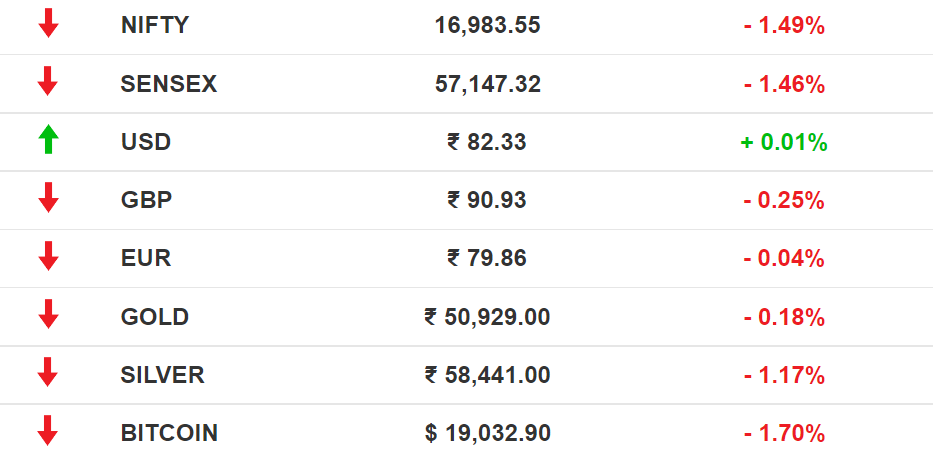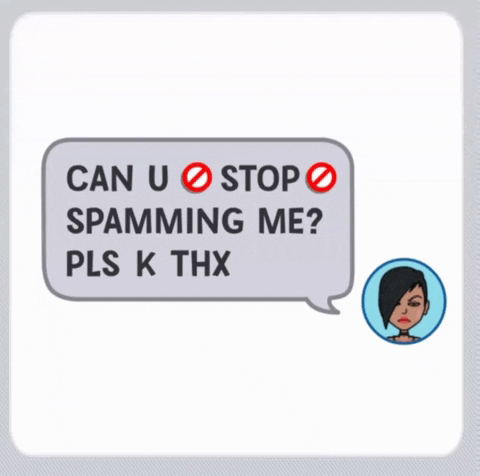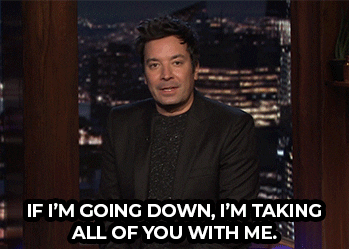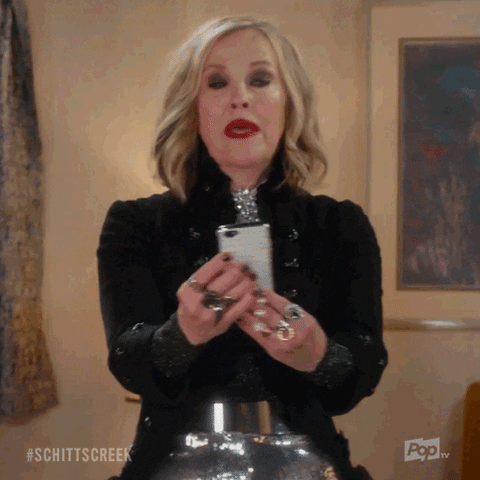Spam has new address
Also in today’s edition: Moonlighting debate rages on; PCs hit a new low; Add to cart is popular with Indians; Tesla vs BYD, a new-age rivalry
Good morning! One of the world’s best airlines just touched down into the 21st century. Singapore Airlines may have cream-of-the-crop A380 suites, service, and a top-notch in-flight menu, but its treatment of pregnant flight attendants reeked of a bygone era. Cabin crew who became mothers were placed on unpaid leave before being sacked and could only reapply for ground jobs—which weren’t guaranteed. The Straits Times reports that Singapore Airlines has now stopped this longstanding practice. About time.
🎧 Climate change is making India's monsoon extreme. Now, AI is coming for data. The Signal Daily is available on Spotify, Apple Podcasts, Amazon Music, and Google Podcasts, or wherever you listen to your podcasts.
If you enjoy reading us, why not give us a follow at @thesignaldotco on Twitter and Instagram.
The Market Signal*
Recession, ahoy: JP Morgan Chase chief Jamie Dimon told CNBC that the US was heading towards a recession in the next few months. The IMF has cut India’s growth forecast to 6.8% from its earlier estimate of 7.4%. That doesn’t sound like good news for stocks. The Nasdaq fell to its lowest level in two years as stock futures nosedived. For the moment, all eyes are on quarterly corporate earnings. Meanwhile, Bloomberg reported that liquor company stocks in China were tanking on speculation the government would ban officials from drinking.
Early Asia: The SGX Nifty climbed upwards (+0.17%) at 7.30 am India time. The Hang Seng Index (-1.64%) and Nikkei 225 (-0.13%) lingered in the red.
SOCIAL MEDIA
WhatsApp Is The New SMS
By that, we mean it’s the new destination for spam. You know this if you’re one of 550 million Indians using the app: businesses ranging from telcos to retailers are flooding you with promotional messages you didn’t sign up for.
Why this matters: WhatsApp’s indispensability means that Indians are less likely to uninstall it than fight spam with two rudimentary options—by replying ‘STOP’, or reporting or blocking annoying accounts. The first doesn’t always work. The issue with the second is that users aren’t given the choice to opt out at the outset.
This wasn’t so in 2020, when businesses had to obtain informed consent. That went poof ever since WhatsApp for Business went apesh*t with scaling and monetisation. Worse, platform limits for bulk messages don’t apply to business accounts. The anarchy will continue until India gets a personal data protection bill. And we don’t know when that’s due.
WORK
The Plot Thickens
The moonlighting debate just got some tailwind after Indian IT giant TCS called the practice an “ethical issue”.
Economist Sanjeev Sanyal, however, doesn’t think so. An influential advisor to the country's top leadership, Sanyal tweeted that there could be issues of conflict of interest or data security, but not ethics. He’s also unsure if it causes inefficiency for the sector, since the moonlighting employees’ output is being captured somewhere.


Earlier: Minister of State for IT, Rajeev Chandrasekhar, had advised companies not to “suppress” moonlighting as it was an idea whose time had come.
Will we find a discussion on moonlighting in the next Economic Survey and perhaps a “nudge” to the industry in the Union Budget? We’ll know soon.
TECH
The Chips Are Down
Personal computer sales are touching the ground. Worldwide shipments have shrunk 19.5% in a year. That’s the steepest decline in over two decades.
Outlier: Apple is bucking the trend, with year-on-year shipments of Macs ballooning 40.2%.
The bad news: Overall PC shipments were down 15% in the quarter ended September 2022, with Lenovo (-16%), HP (-28%), and Dell (-21%) being badly hit, according to market research firm IDC. The dominoes knocked down semiconductor giants AMD and Samsung, too. TSMC, Apple’s chip supplier, was the outlier.
The Signal
Demand for PCs and consumer durables has plunged as inflation eats into budgets. The knock-on effect raises a question for chip makers: what about the new capacity coming up globally? The swing in demand has put the semiconductor industry in a funk.
In today’s electronically connected world, chips are like oil. And the trend is similar to shale oil, where producers go out of business when demand for crude oil falls and prices dip below $50 a barrel. Fracking is viable only when oil stays above that level.
With several countries, including India and the US, incentivising new fabs, chip-making is set to leap. But will they be viable if there is a supply glut? Companies such as Tesla and Apple require custom chips and are more reliable clients for chipmakers. Generic suppliers will, however, be at the mercy of market trends, and a glut spurred by subsidised foundries could turn chipmaking into a cyclical business.
ECOMMERCE
More Indians To Shop Online Than Americans
India’s ecommerce industry is expected to be worth $150 billion by 2027, up from the current $50 billion, according to a report by Flipkart and management consulting firm Bain & Company. An expected 25%-30% annual growth will see India replace the US as the second-largest online shopper base—after China—in the next 1-2 years.
Boom: India is expected to have 400 million-450 million online shoppers by 2027, up from 180 million-190 million last year. This is mainly due to growing internet accessibility in the country, buoyed by Covid.
US slowdown: Americans, meanwhile, are cutting back on spending due to high interest rates and inflation. So much so that Macy’s, Amazon, Target, and Best Buy are offering huge discounts. Macy’s outstanding inventory jumped to 7% in the last quarter.
ELECTRIC VEHICLES
Tesla Versus BYD = Ford Versus GM
In June, we told you about America’s biggest automakers sparring over EVs. Ford and GM may be fighting for a slice of tomorrow, but over in NEV land (that’s ‘new energy vehicles’) it’s a duopoly between Tesla and BYD. For now, Warren Buffett-backed BYD has the edge.
The Chinese company weathered a zero-Covid policy and supply-chain shocks in ways Tesla couldn’t because of its stable chain, starting with the ability to make its own batteries. BYD isn’t just a major supplier to European countries; it’s also the world’s second-largest EV battery maker.
This self-sufficiency would’ve played a critical role in BYD’s record 200,000-strong sales in China in September. Tesla shipped a bumper 83,135 cars, but that came after several hiccups—not least a last-minute dash to boost production capacity at its Shanghai outpost.
Meanwhile: BYD just launched its first passenger car in India—an electric SUV called Atto 3.
FYI
Chugged: Premium beermaker Bira91 has acquired retailer The Beer Cafe in an all-stock deal.
Realty bites: After China, the US property market is collapsing as sales fall and job cuts loom.
Calling time: Ravi Kumar S, Infosys’ president for specialised digital sales and metaverse foray, has quit after a 20-year stint in the company.
New CJ: Justice DY Chandrachud is set to become the 50th Chief Justice of India. Outgoing CJI UU Lalit has recommended him for the job.
Burp tax: Farmers in New Zealand, the world’s largest dairy products exporter, will have to pay tax on farm emissions such as methane and carbon dioxide.
Uptick: HDFC Bank has posted a 23% rise in Q2 lending, indicating that consumers and businesses are spending more, and perhaps the economy is reviving well.
Out of favour: Jack Ma, once a mascot of Chinese entrepreneurship, is struggling to raise money for his private equity fund, Yunfeng Capital.
THE DAILY DIGIT
$4 trillion
That’s the global output loss projected by the IMF until 2026, as the result of a looming recession. For scale, that’s roughly the size of the German economy (The Sydney Morning Herald).
FWIW
Bye, spy with a little eye: It’s a good day for Dutch employees. A court in The Netherlands ruled that ordering workers to turn their webcams on violates the right to privacy. A Florida-based company called Chetu had fired a telemarketer for refusing to be monitored during work hours. We’d heard horror stories about privacy invasions during the pandemic; now that the worst is behind us (🤞🏽), we hope such protocols are binned faster than you can turn on your webcam.
Scavengers ahoy: Stooping is now a thing in China. Not the kind that ruins your spine, but the kind where you rummage through trash to find treasure. Young Chinese, inspired by peers in New York, Amsterdam, and Toronto, are combing alleys and curbsides to thrift armchairs, jewellery boxes, and even couches. There’s even a ‘StoopingBeijing’ page on Xiaohongshu with 12,000 followers. Scrap and second-hand furniture dealers in India say hi.
Kirk against the universe: William Shatner, who played Captain Kirk in Star Trek, doesn’t have flattering things to say about space. The nonagenarian actor had boarded Jeff Bezos’ Blue Origin capsule in October 2021. In a first-person account, he said the experience “felt like a funeral” given the cold expanse of space against the “warm nurturing” of earth. Guess the great Carl Sagan was bang on about the pale blue dot, after all.
Enjoy The Signal? Consider forwarding it to a friend, colleague, classmate or whoever you think might be interested. They can sign up here.
Do you want the world to know your story? Tell it in The Signal.
Write to us here for feedback on The Signal.









